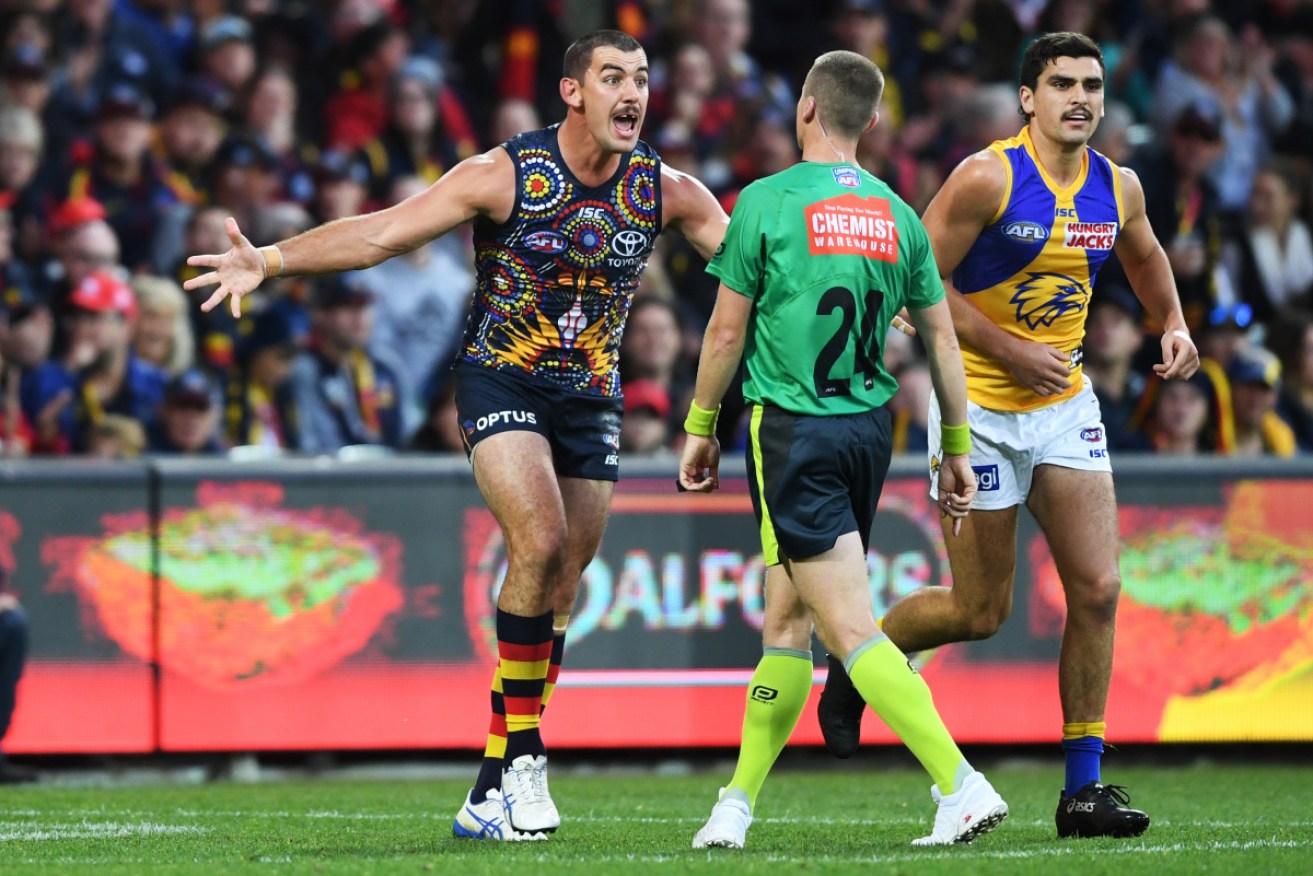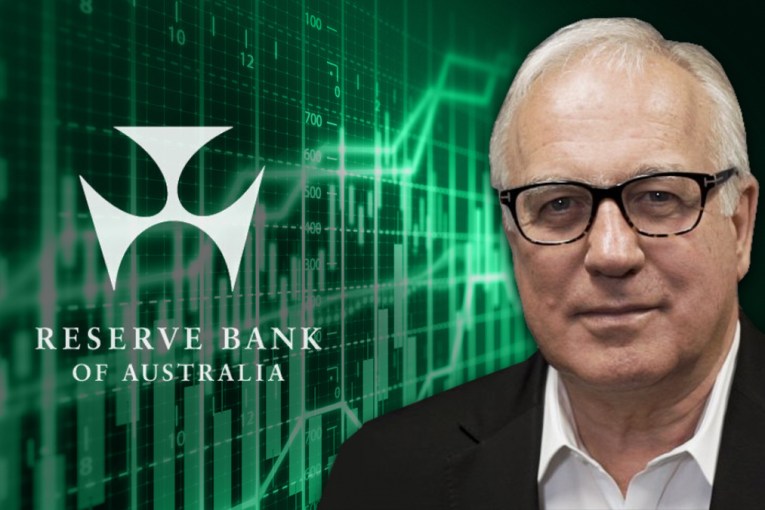Nathan Burke: Let’s return to mutual respect between players and umpires


What was that? Adelaide's Taylor Walker argues with the umpire. Photo: Getty
“This is borderline cheating”. The year was 1996 and this was my rather pathetic attempt at denigrating an umpire.
I knew that calling him an outright cheat would be going too far, so my aim was to plant the seed instead.
Fortunately they were different times back then and, as such, I escaped without a sanction. Certainly I wasn’t slugged with a $7500 fine like Dale Thomas was last week for calling a boundary umpire a cheat.
And with Dane Rampe receiving a $10,000 fine for saying an umpire talks like “a little girl”, I consider myself very lucky indeed.
Of all the conversations I had with umpires, it is the ‘cheating’ one that sticks out in my mind.
Maybe because it wasn’t purely a spur-of-the-moment comment and there was a bit of premeditation about it.
In those days the umpires followed a process when faced with abuse.
The mandated response was ‘What did you say?’ The rule basically gave you a free shot, as long as you weren’t personal or overly demonstrative.
The smart players said “Nothing or I wasn’t talking to you”. Only the dumb ones repeated it and suffered the consequences.
On this particular day my frustration boiled to the point where I wanted to verbally wound the umpire.
No one likes to be linked with cheating, so my plan was infer it rather than say it.
I got my point across without giving away a 50-metre penalty. However the ump had the last laugh because I didn’t receive a free for the remainder of the match.
Umpires used to have more empathy for players, and understanding it was an emotional game they let the players vent … to a degree.
It worked because most players knew exactly where the line was.
Then some bright spark in the AFL changed the rules and in 2001 rescinded the “What did you say?” concession.
Umpires were instructed not to talk to players and simply blow a whistle for 50 metres whenever they heard something they didn’t like. No correspondence would henceforth be entered into.
I discovered this the hard way in the first game of 2001. I backchatted and immediately gave away a 50-metre penalty.
St Kilda coach Malcolm Blight dragged me from the ground and then each time the opposition kicked a goal the phone would ring on the bench with a message: “That’s another goal you’ve caused”.
The phone kept ringing and after a while the boys on the bench would simply say “Burkey, that’s for you”.
We can now see that 2001 was the beginning of the end in the previous umpire-player relationship and it has been poor ever since.
Certainly it is a long way from great umpires like Peter Carey, who on more than one occasion told me to shut up and get a kick. He was often right, as when you are playing poorly you tend to whinge a lot more than when you are playing well.
On other occasions he would run past and tell you how clear you were from your opponent. They would even find you at a break and apologise when they missed a free kick.
The key word in the relationship was respect – not for merely being an umpire but because of the way they conducted themselves on the field.
They understood what we were going through and accommodated our outbursts. We also understood they were human and reciprocated the empathy.
We need to get rid of the live umpire microphones. If they ever say anything interesting then replay it.
Let the umpires and the players have an open and honest relationship without everything being dissected.
Do this and I guarantee you the mutual respect will return.
Nathan Burke is a former St Kilda captain who played 323 AFL games for the Saints, winning three Trevor Barker Awards as best-and-fairest player.








